Ayurvedic Treatment for Depression
Ayurveda is a traditional medical system originated in India that not only treats physical ailments but also mental and spiritual issues. This makes Ayurveda a potential source for providing effective remedies for the widespread problem of mental illness. Stress, anxiety, and depression are global issues that are increasing with time.
It’s acceptable to feel a little restless, depressed, and stressed out sometimes. But the problem arises when things extend and ultimately destroy life’s quality. Stress can result from stress that continues. It might result in a sleeping issue, leading to several other illnesses. Ayurveda provides a safe, all-natural treatment for depression, anxiety, and stress. Additional benefits of using Ayurvedic drugs for stress are also offered. It elevates spirits, treats digestive issues, eases sleep deprivation, and gives life inspiration. If we don’t maintain a balanced diet and lifestyle, we run the risk of experiencing several mental health problems. The kind of problem you experience is entirely determined by the dosha.
Depression Symptoms
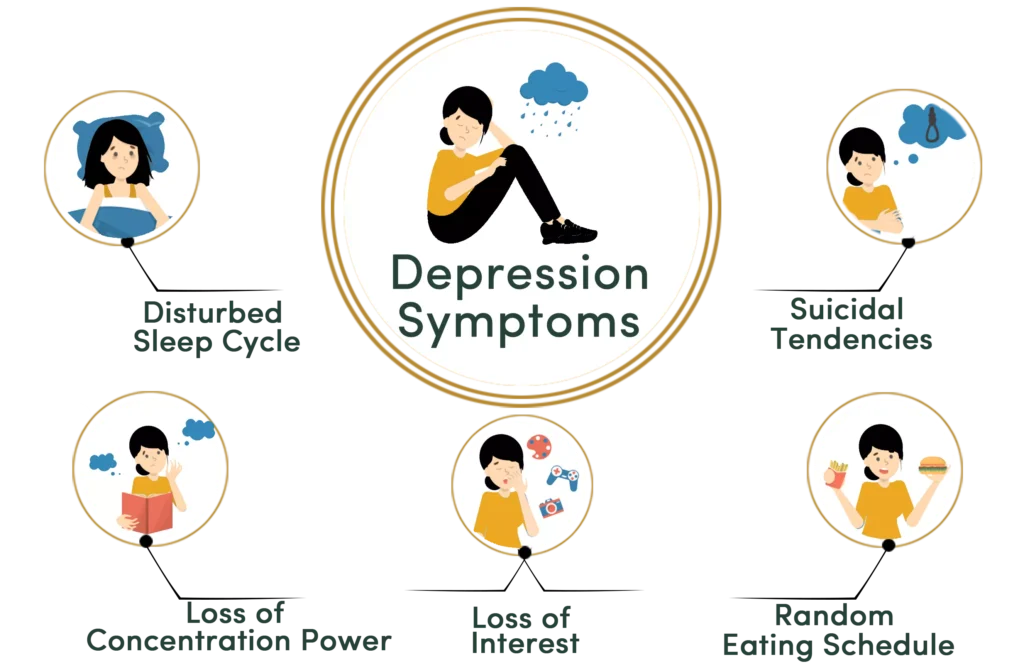
Types of Depression
- Pitta-Type Depression
- Vata-Type Depression
- Kapha-Type Depression
Pitta-Type Depression

You may experience pitta-type depression as a result of activating pitta. This type of mental illness usually results from feelings of disappointment brought on by things like job loss or divorce. This pitta-type depression’s symptoms include some unique features.
- Excessive self-evaluation
- Rejection
- Blaming oneself or others
- Failure, anger, jealousy, feeling stupid, shame, and suicidal thoughts.
The key to overcoming pitta depression is figuring out how to lessen its influence on your life. Practice relaxation methods such as yoga, meditation, or breathing exercises to make this feasible. Other options include avoiding too-spicy, tangy, and light meal types. Rather, choose mild, arid, and cooling foods such as most vegetables, beans, potatoes, and oats.
Depression of the Vata Type
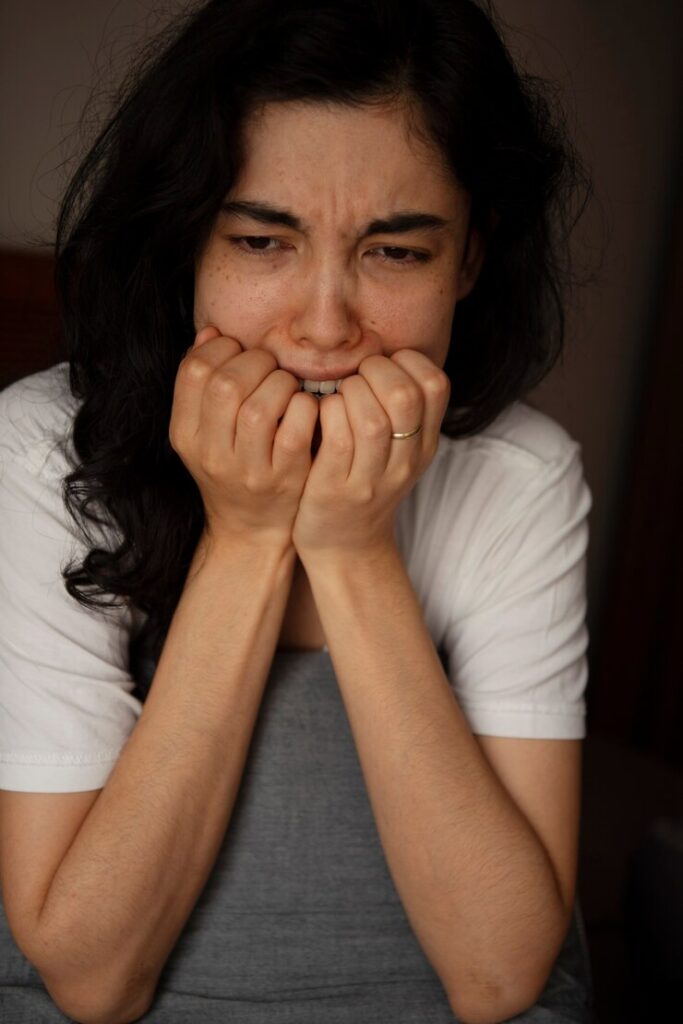
If you consume too much data in your diet or everyday routine, you are certain to experience depression of the Vata variety. Concussion, shock, or loss are the root causes of this mental health condition. The following symptoms are indicative of vata-type depression:
- Weeping readily
- Not enough sleep
- Random changes in mood
- dreams involving sounds
- Decreased desire
- Anxiety and fear
- Anxiety
- Reduced hunger and
- reduction in weight
- headaches and joint
- pains
- Talking too much.
You must stay away from diets and lifestyle choices that cause vata in order to treat this type of sadness. Along these lines, make an effort to avoid spicy, hard, and affecting tastes as well as basic food. Choose cooked meal types that have flavors that are sweet, salty, and sour instead. It’s also advisable to follow the same eating schedule.
Kapha-Type Depression
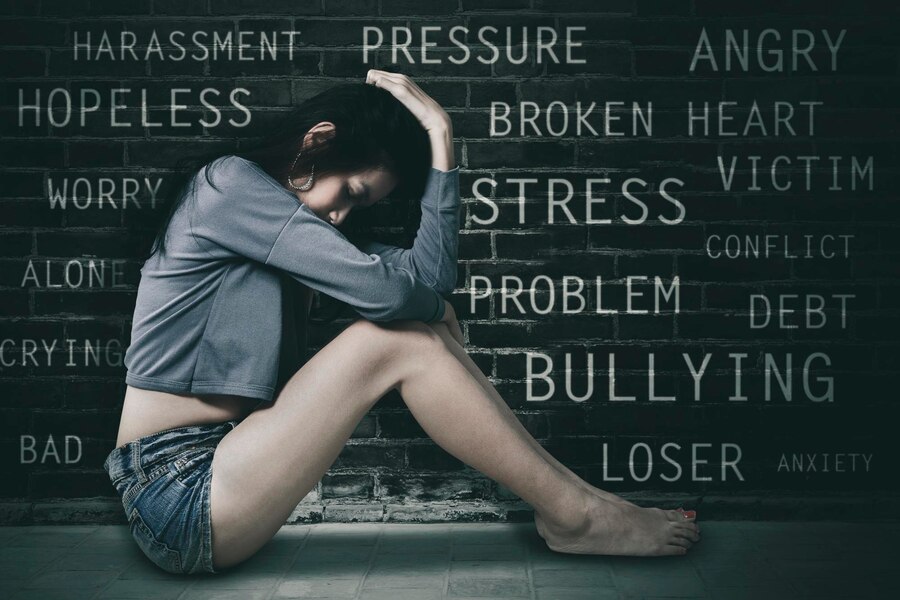
Depression of the Kapha kind arises when there is an imbalance of Kapha in one’s diet or way of living. Among this condition’s symptoms are
- being unhappy, lifeless, or inactive
- eating too much food to make up for bad feelings
- All around indifference
- Talking a little and sleeping a lot
- wasting the entire day in bed
- A negative perspective on life
- Gaining weight
- Inactive behavior
- negative mental habits
Try to reduce the amount of kapha in your life to prevent this illness. This may be achieved by avoiding flavors that are sweet, salty, or sour and choosing flavors that are bitter, spicy, and acidic instead. It’s also advisable to stay away from big meals. Plan your meals so you can have three small, regular meals a day without between-meal snacks.
Causes of Depression
Depression can sometimes be the outcome of a single, specific event. However, there could be a mix of several circumstances responsible for this condition, such as:
Changes in Hormones: Hormones are essential for supporting bodily processes and have the power to affect a person’s behavior and mood. Stress, anxiety, and depression are brought on by an imbalance between the two hormones in women. On the other hand, lower testosterone levels in males act as hormones that cause depression.
Stressful events: Depression may sometimes attack out of nowhere. An individual is at risk of experiencing depression if they have experienced any physical or psychological concussion, such as sexual abuse, the loss of a loved one, a broken relationship, theft, or a lack of money.
Certain medications: Sometimes certain medications may also be responsible for aggravating, or initiating depression symptoms. Drugs such as sleeping pills, birth control pills, and insomnia, if taken in excess, may adversely affect your physical and mental health. To prevent the condition, opt for anxiety treatment in Ayurveda.
Environmental factors: Your living environment has a significant impact on both your behavior and mental health. Your whole life may also be permanently impacted by early conflict between parents and kids, toxic relationships, divorce, and a lack of love and care.
Sedentary lifestyle: Your daily Do List reflects your future health. When your body is physically active, or engaged in any physical task, your brain releases serotonin. It is a body chemical that boosts your mood. Contrary to this, a lack of physical movement, or following a passive lifestyle results in lower serotonin levels.
Virdudh ahaara: As per Ayurveda, consuming “Tamsik ahaar” is a principal cause responsible for depression. It may include animal products such as eggs, fish, meat, chicken, seafood, or excessive spice-containing food items. But worry not; there are several Ayurvedic remedies for depression and anxiety available through which you can manage this condition.
Ayurvedic Medicines
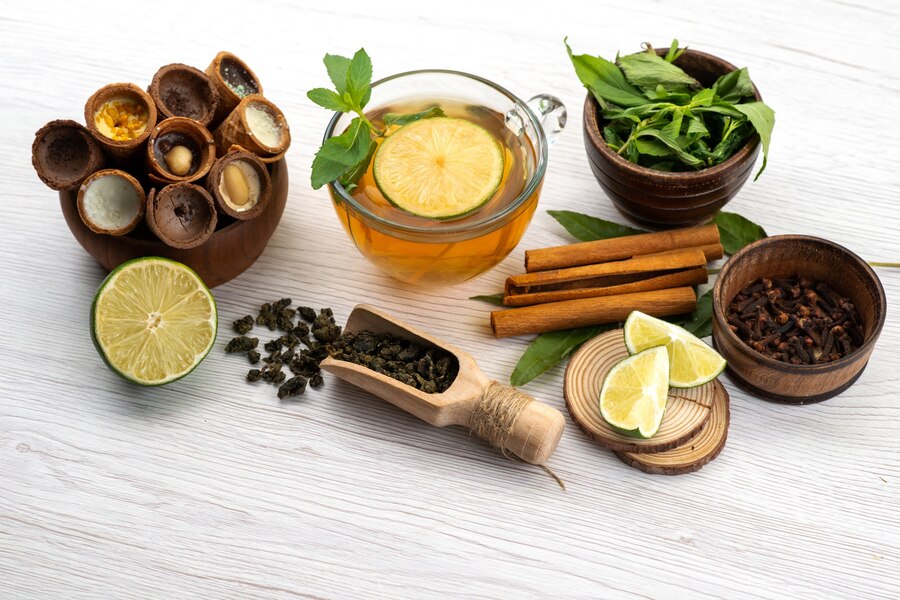
Ayurvedic medications lessen anxiety and aid in the management of depression by addressing the dosha imbalance. Among the popular medications are:
1. Ashwagandha: Also called Indian ginseng, this herb is well-known for lowering stress and assisting with mood swings.
2. Brahmi: It eases mental tension and promotes repose, both of which aid in the treatment of depression.
3. Guduchi: Sometimes called Giloy, this herb is effective in treating depression.
4. Bhringaraj: This refreshing plant helps manage stress and anxiety.
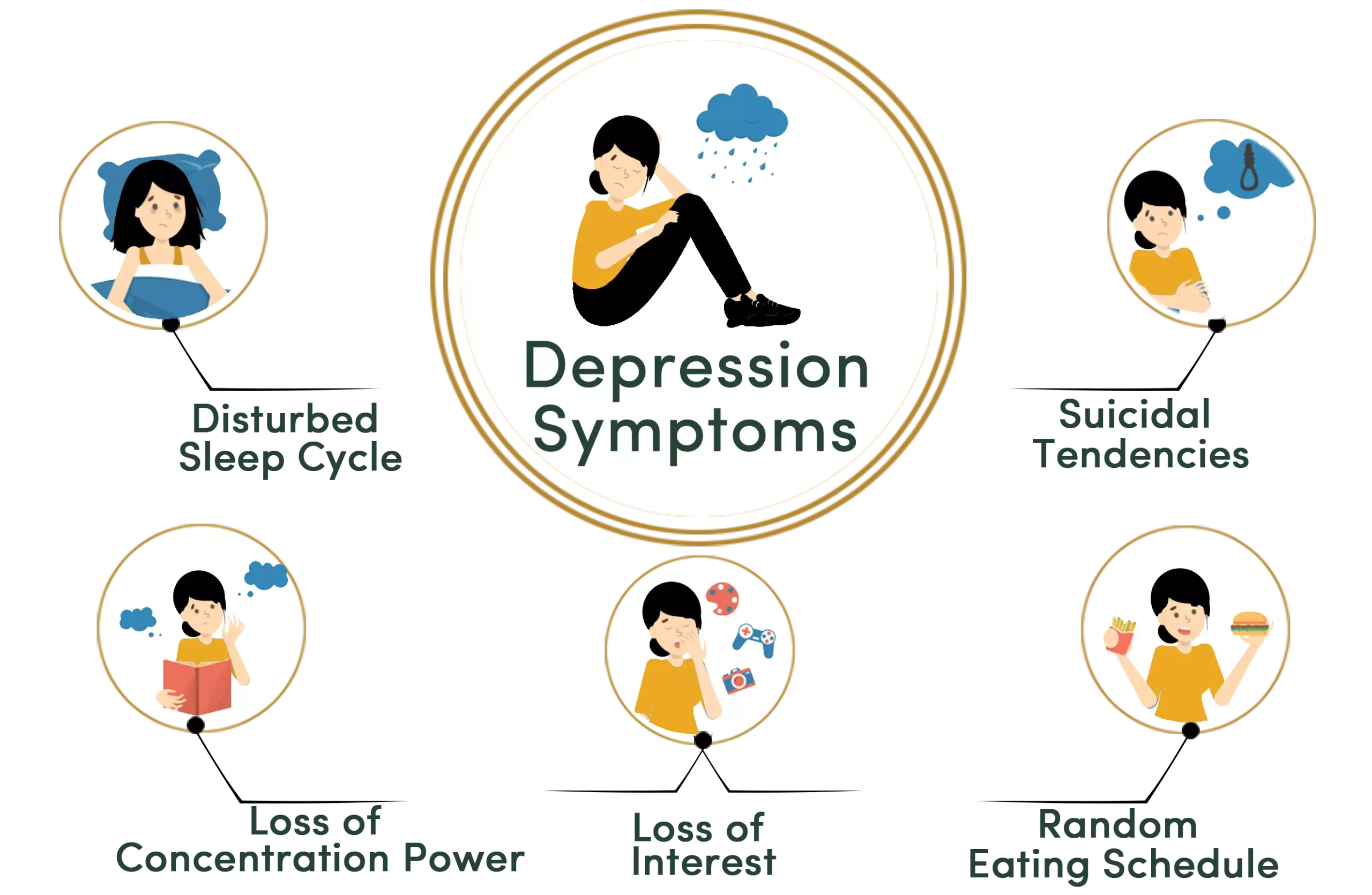
Comments are closed.